


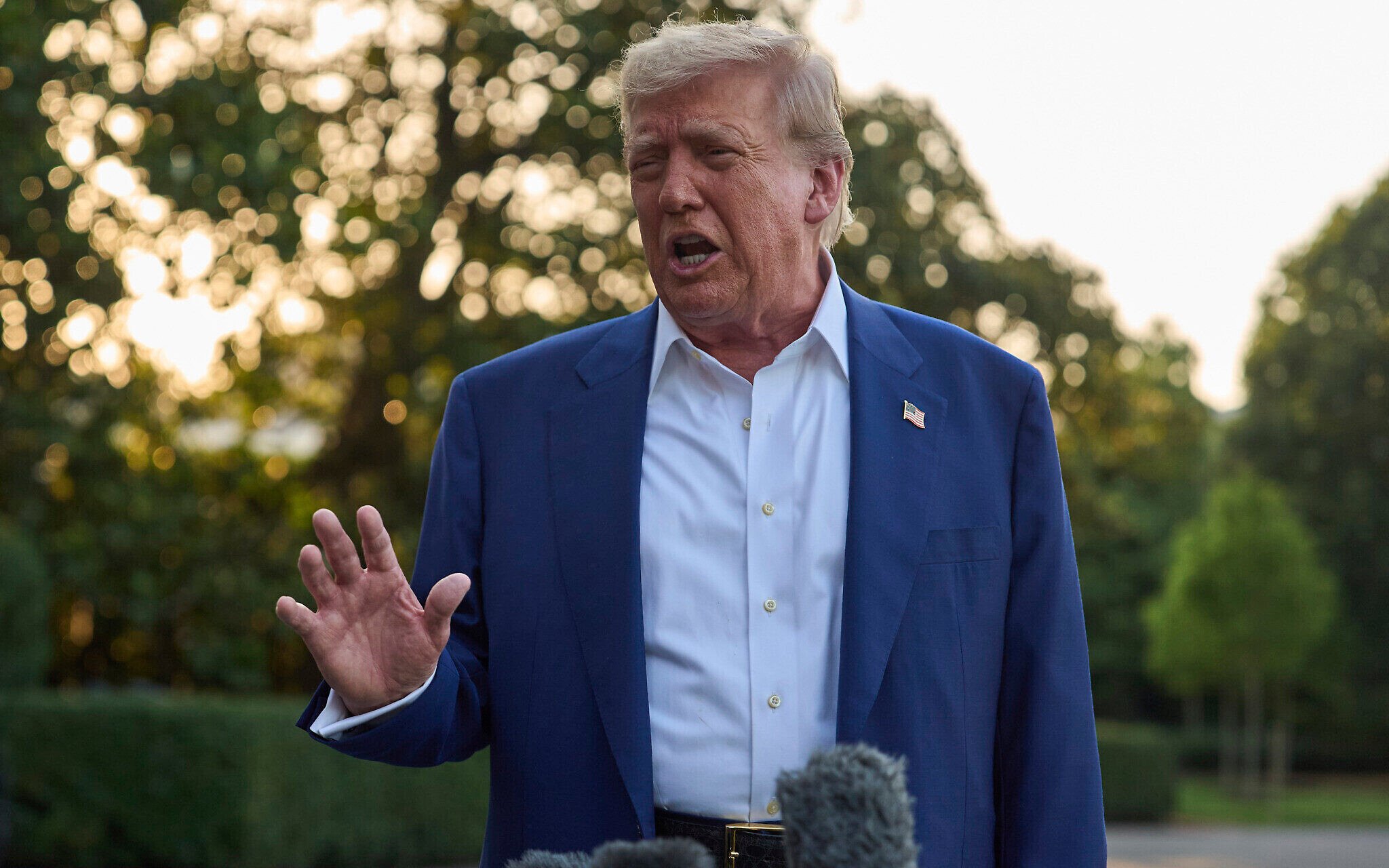
In an unprecedented show of frustration with Israel by a US president, Donald Trump expressed in no uncertain terms on Tuesday that he was furious at Israel as the ceasefire he announced overnight started to unravel.
“I’m not happy that Israel’s going out now,” he told reporters, as Israeli jets were responding to Iranian missile strikes earlier in the day.
“There was one rocket that I guess was fired overboard [by Iran]. It was after the time limit, and it missed its target. And now Israel’s going out. These guys gotta calm down. Ridiculous…”
The Israel Defense Forces said two missiles were shot at the country’s north at around 10:30 a.m., some three and a half hours after a mutually agreed ceasefire brokered by the US and Qatar began. The attack on the north followed a deadly Iranian missile strike that killed four people in Beersheba shortly before the truce began.
Trump did not mention the slain Israeli civilians in his tirade, made before he stepped on to his helicopter to head from the White House to the NATO summit in The Netherlands.
The Israeli Air Force ended up carrying out a small strike against an Iranian radar north of Tehran around the time Trump was talking to reporters, Israeli officials confirmed.
Trump also wrote a series of warnings on social media saying Israel must turn its planes around. Israel had said it would “forcefully strike the heart of Tehran” after the Iranian missile fire.
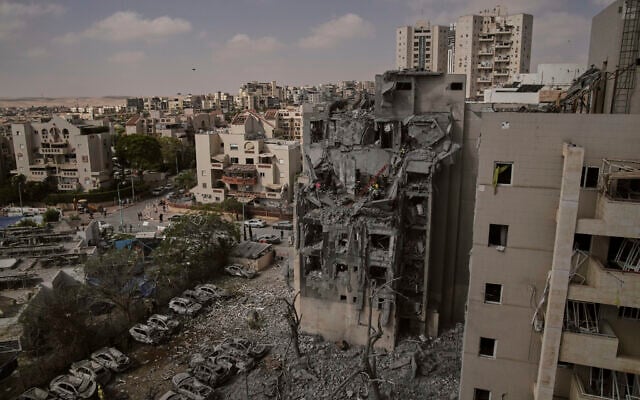
“Israel. Do not drop those bombs. If you do it is a major violation. Bring your pilots home, now! Donald J. Trump, president of the United States,” he wrote on Truth Social.
Trump then insisted that “ISRAEL is not going to attack Iran.”
“All planes will turn around and head home, while doing a friendly ‘Plane Wave’ to Iran,” Trump wrote. “Nobody will be hurt, the Ceasefire is in effect! Thank you for your attention to this matter!”
Trump was sending out posts on his Truth Social platform promising that Israel would not strike Iran “after he knew we would attack,” an Israeli official told the Kan public broadcast.
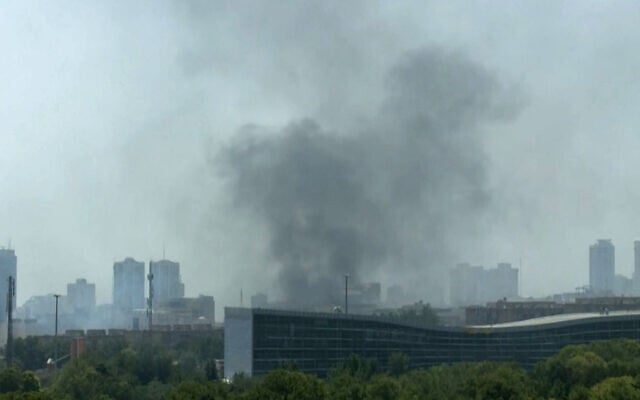
In his comments to reporters, Trump blamed both countries for violating the ceasefire: “I’m not sure they did it intentionally. They couldn’t bring people back. I don’t like the fact that Israel went out this morning at all. I’m going to see if I can stop it.”
Trump also expressed his frustration at Israel for carrying out major strikes after he announced that a ceasefire had been agreed upon and would start in the coming hours.
“Israel, as soon as we made the deal, they came out and they dropped a load of bombs the likes of which I’ve never seen before,” said Trump.
“I didn’t like plenty of things I saw yesterday,” he said. “I didn’t like the fact that Israel unloaded right after we made the deal. They didn’t have to unload. And I didn’t like the fact that… The [Iranian] retaliation was very strong. But in all fairness, Israel unloaded a lot.”
Israel dropped over 100 munitions on dozens of Iranian military targets overnight, after Trump announced the truce but well before the anticipated 7 a.m. start time.
“We basically have two countries that have been fighting so long and so hard that they don’t know what the f*ck they’re doing,” said Trump.
Prime Minister Benjamin Netanyahu and Trump spoke by phone after the US president fumed at Israel on the White House lawn. Trump spoke “extremely directly and firmly” during the conversation, according to Axios, which said Netanyahu understood the severity of the situation.
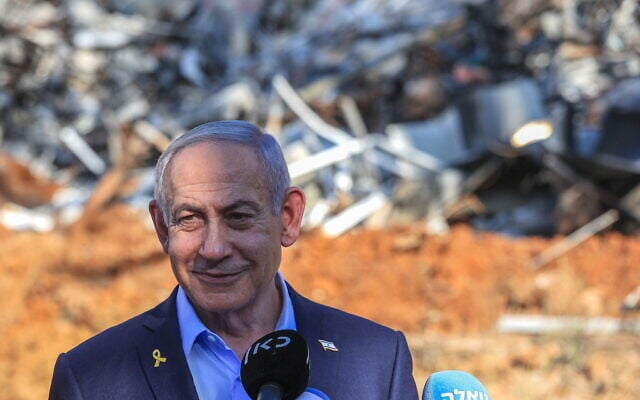
Netanyahu’s office confirmed that he spoke with Trump, but put a far more positive gloss on the call.
“In the conversation,” said the Prime Minister’s Office, “President Trump expressed his immense appreciation for Israel — which achieved all of its war goals. The President also expressed his confidence in the stability of the ceasefire.”
“Following President Trump’s conversation with Prime Minister Netanyahu, Israel refrained from further attacks,” the PMO said.
In its earlier statement on Tuesday confirming its acceptance of the ceasefire, the PMO had promised to “respond forcefully” to any violations of the truce.
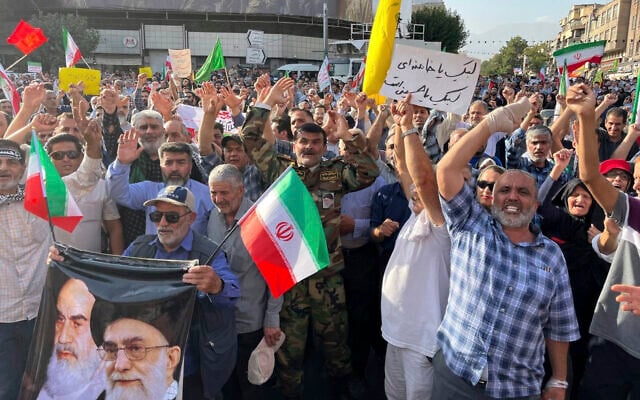
Hebrew media reported that following public calls for retaliation against Iran by government ministers, members of Netanyahu’s cabinet received instructions not to give interviews or post on social media until they were told otherwise.
Israel and Iran entered into open conflict on June 13 when Israel launched airstrikes targeting Iran’s top military leaders, nuclear scientists, uranium enrichment sites and ballistic missile program. Israel said the campaign was necessary to prevent the Islamic Republic from realizing its declared plan to destroy the Jewish state.
Then, early Sunday morning local time, US forces bombed three crucial nuclear sites in Iran, ending more than a week of speculation over whether it would join the campaign. Iran retaliated Monday evening with a missile attack on a major US airbase in Qatar that did not cause any casualties, and hours later Trump announced the ceasefire.
Iran, which avowedly seeks Israel’s destruction, has consistently denied seeking to acquire nuclear weapons. However, it has enriched uranium to levels that have no peaceful application, has obstructed international inspectors from checking its nuclear facilities, and expanded its ballistic missile capabilities. Israel says Iran has recently taken steps toward weaponization.
Iran retaliated to Israel’s attacks by launching over 550 ballistic missiles and around 1,000 drones at Israel. Iran’s missile attacks killed 28 people and wounded thousands in Israel, according to health officials and hospitals. Missiles have hit apartment buildings, a university, and a hospital, causing heavy damage.
Emanuel Fabian contributed to this report.
